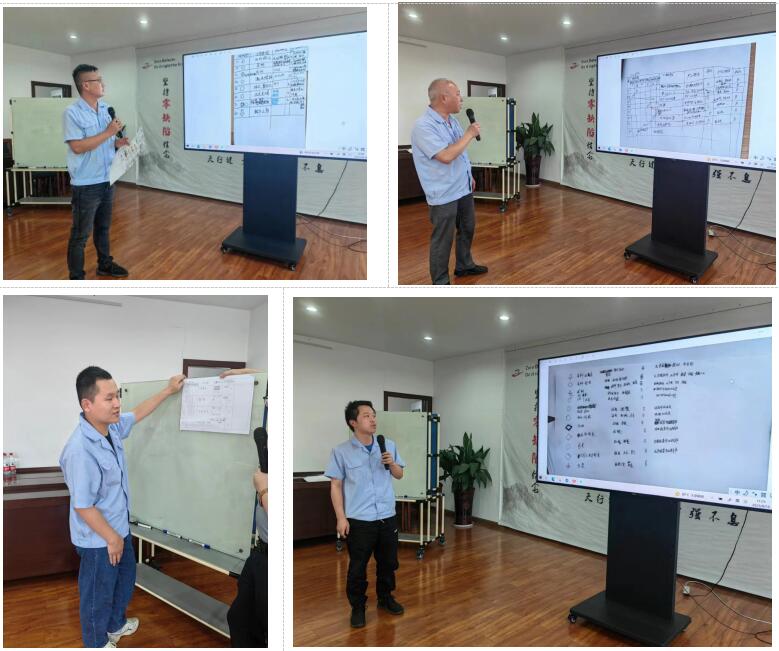In order to further implement the zero defect concept of "quality is generated by the prevention system, and quality must be focused on the source", and improve the company's overall quality management level. On August 18, 2023, the company hired Kaida International Senior Trainer Teacher Ying to conduct APQP special training on product quality planning for technical, quality, production, and engineering personnel in various business units of the company.
APQP tool is a quality planning method that runs through multiple stages from plan, design, production process planning and implementation to product use. Through the pre production of quality work in the product development process and the establishment of a mature and stable process, it achieves a proactive quality work strategy, ultimately achieving timely, high-quality, and low-cost delivery of products, ensuring customer satisfaction. Teacher Ying provided a detailed explanation on how to implement APQP in five stages, as follows:
Stage 1: The input of customer requirements (product technical requirements, quality requirements, development progress, product reliability requirements, etc.) is transferred to the company's internal output content: design objectives, reliability and quality objectives, material lists, process flow charts, product quality assurance, etc.
Stage 2: The output content of Stage 1 is transformed into DFMEA, reliability and assembly assessment, design verification review, sample manufacturing to control plan, design drawings, standard material specifications, special characteristics of the product process, and requirements for related measuring tools and testing equipment.
Stage 3: The output content of Stage 2 is transformed into packaging requirements, process review, process operation instructions, site layout, PFMEA, control plan, process instructions, MSA, etc.
Stage 4: The output content of Stage 3 is transformed into MSA evaluation, process capability research, production approval, confirmation of production tests, packaging evaluation and control plan, etc.
Stage 5: The output content of Stage 4 is transformed into output processes that reduce variation, meet customer requirements, evaluate delivery and services, and address remaining issues at each stage, thereby updating design requirements, FMEA, work instructions, control plans, and other documents.
At the same time, the teacher organized students to conduct on-site practical training, and representatives from each group came on stage to share, basically mastering the main content of APQP tool implementation. Finally, Hou Shenghui, the R&D director of the company, issued a training summary: There are always problems in our R&D process, such as sporadic production of R&D materials, resulting in incomplete quality planning in the early stages, which leads to various quality problems during mass production of products in the later stage, resulting in customer complaints. Through this training, we have gained an understanding of the main materials that need to be prepared during the product development phase, the validation projects that should be carried out, and the planning direction for product quality. In the development phase, we need to carry out early product quality planning to prevent the occurrence of product quality problems in advance.
The construction of a preventive quality culture is urgent, and this APQP special training will provide strong technical and quality management support for the company's product structure transformation.

Representatives from each group share implementation cases of APQP tools

